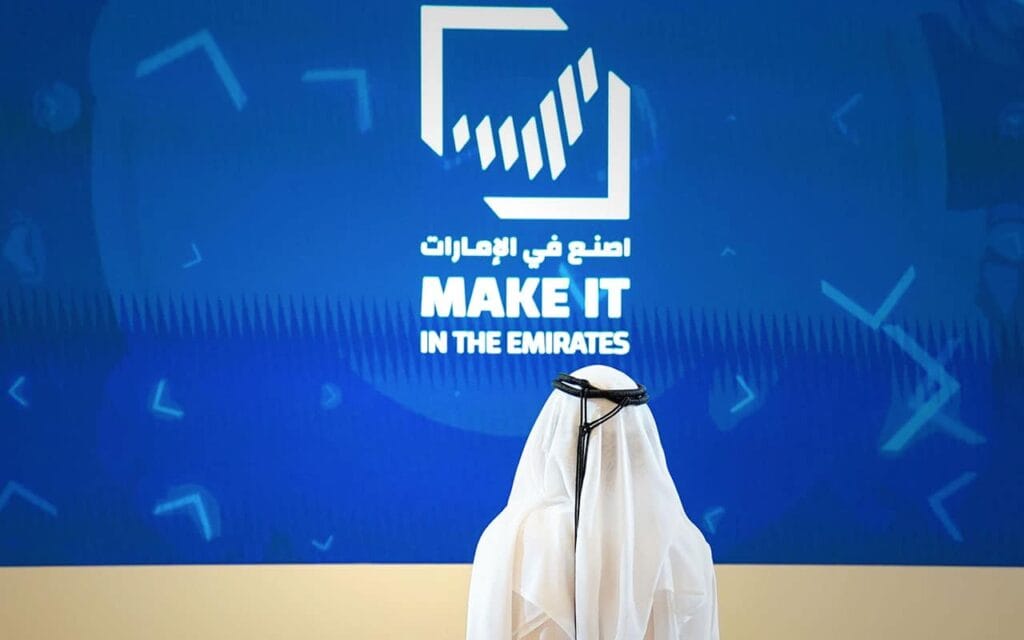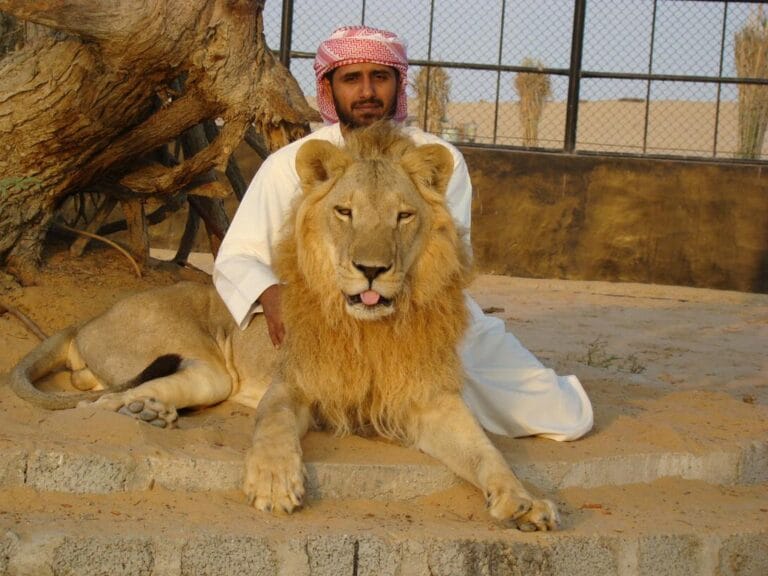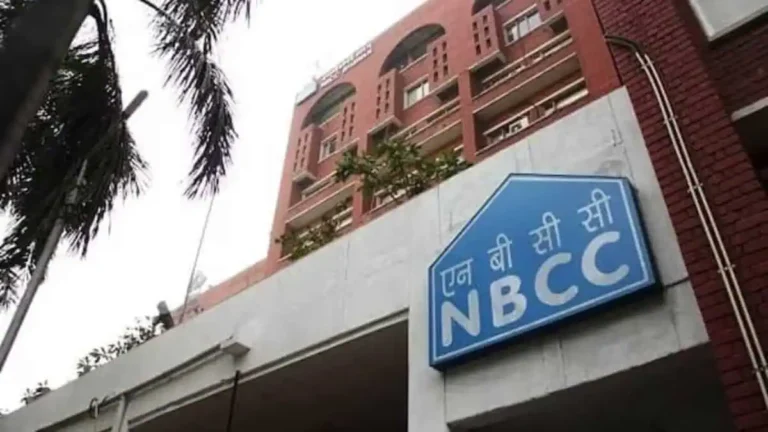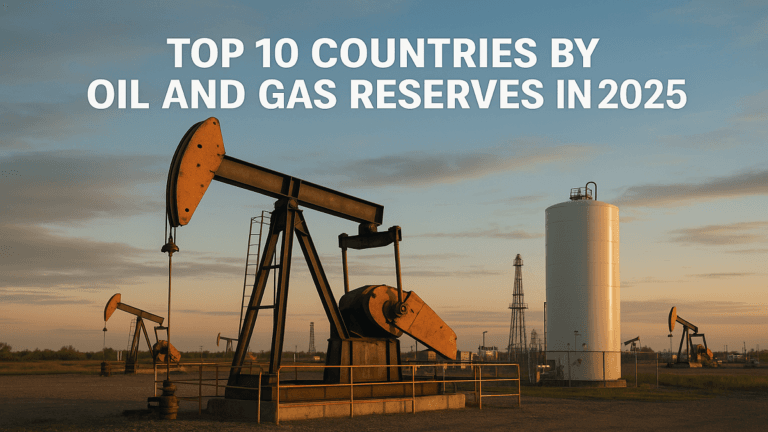
The “Make it in the Emirates” initiative continues to transform the UAE’s industrial and economic landscape in 2025, representing one of the most ambitious national industrial strategies in the region. Launched as part of the UAE’s vision to diversify its economy beyond oil dependence, this comprehensive program aims to position the Emirates as a global manufacturing hub while creating thousands of skilled jobs and attracting significant foreign investment.
As the initiative enters its pivotal phase in 2025, both individuals and businesses are presented with unprecedented opportunities to participate in the UAE’s economic evolution. This article explores the latest developments, regulatory frameworks, and practical steps for those looking to benefit from the “Make it in the Emirates” initiative.
What is “Make it in the Emirates”?
“Make it in the Emirates” is a unified industrial strategy launched under the UAE’s National Industrial Strategy 2030. The initiative represents a fundamental pillar of the UAE’s economic diversification plans, focusing on:
- Promoting local manufacturing capabilities.
- Enhancing industrial self-sufficiency.
- Creating sustainable, knowledge-based job opportunities.
- Attracting foreign direct investment in priority sectors.
- Developing advanced manufacturing technologies.
Table of Contents
Key Developments for 2025
Expanded Investment Opportunities
2025 marks a significant expansion of the “Make it in the Emirates” initiative, with the government allocating AED 30 billion to support growth across priority sectors. These include:
- Advanced Manufacturing Technologies – With emphasis on Industry 4.0 capabilities including AI-driven manufacturing, robotics, and smart factories.
- Pharmaceuticals and Medical Equipment – Building on lessons from global supply chain vulnerabilities.
- Clean Energy and Sustainable Technologies – Aligning with the UAE’s commitment to net-zero emissions by 2050.
- Food Security Technologies – Including vertical farming, agricultural technology, and food processing.
- Space Industry – Expanding on the UAE’s growing aerospace capabilities.
Enhanced Incentive Packages
The 2025 iteration of the initiative introduces enhanced incentive packages designed to attract both international corporations and SMEs:
- Financial Incentives – Including preferential financing rates through the Emirates Development Bank.
- Infrastructure Support – Subsidized industrial land and utilities in specialized economic zones.
- Duty Exemptions – Expanded customs duty exemptions for manufacturing inputs.
- Tax Benefits – Favorable tax treatment for qualifying industrial activities.
- Regulatory Fast-Tracking – Expedited permitting and approval processes.
Impact on UAE Labor Market
The “Make it in the Emirates” initiative is projected to create over 50,000 skilled jobs by 2026, significantly impacting the UAE labor market. For employment seekers, this presents substantial opportunities across various sectors.
Skills in Demand
The initiative prioritizes the following skill sets:
- Advanced manufacturing and automation expertise
- Digital skills including AI, data analytics, and IoT
- Research and development capabilities
- Sustainable technology knowledge
- Supply chain management excellence
Emiratization Requirements
In alignment with broader Emiratization policies, industrial companies participating in the “Make it in the Emirates” initiative must meet specific Emiratization targets, which have been adjusted for 2025:
- Companies with 50+ employees must ensure at least 4% of skilled positions are filled by UAE nationals.
- Advanced training programs for Emirati nationals must be implemented.
- Knowledge transfer mechanisms must be established.
Recent News
- UAE Job Market: New Report Reveals Surge in Private Sector Hiring and In-Demand Roles
- UAE Top Ten Soft Power Ranking Reaffirmed in Brand Finance Global Index 2026
- AI lifeguard Dubai Rollout Adds Smart Cameras and Sensors to Boost Beach Safety
Regulatory Framework and Considerations
Updated Industrial Licensing Requirements
As of 2025, the UAE has streamlined its industrial licensing process, with the following key requirements:
- Industrial License Application – Processed through the Ministry of Industry and Advanced Technology’s unified digital platform
- Environmental Compliance – Adherence to updated UAE environmental standards
- Quality Control Certification – Compliance with UAE standards and conformity regulations
- Workforce Housing and Safety Standards – Meeting enhanced 2025 labor accommodation regulations
Foreign Ownership Provisions
Following the landmark changes to the Commercial Companies Law, foreign investors can now enjoy:
- 100% ownership of industrial enterprises across all sectors.
- Enhanced intellectual property protections.
- Streamlined profit repatriation processes.
Participating in “Make it in the Emirates” 2025
For Businesses
Businesses looking to participate in the initiative should follow these steps:
- Sector Identification – Determine alignment with priority sectors.
- Feasibility Analysis – Conduct comprehensive market and regulatory assessment.
- Application Submission – Apply through the Ministry of Industry and Advanced Technology portal
- Incentive Package Negotiation – Engage with relevant authorities to optimize available benefits.
- Compliance Planning – Develop strategies for meeting Emiratization and other regulatory requirements.
For Job Seekers
Individuals looking to benefit from employment opportunities should:
- Skills Assessment – Evaluate qualifications against in-demand skills.
- Certification and Training – Pursue relevant upskilling opportunities.
- Network Development – Connect with participating companies and industry associations.
- Labor Law Familiarization – Understand UAE labor law requirements.
- Documentation Preparation – Ensure all work permits and qualifications are properly certified.
Regional Industrial Hubs
The “Make it in the Emirates” initiative operates through specialized industrial zones across the Emirates:
Abu Dhabi
The Khalifa Industrial Zone Abu Dhabi (KIZAD) continues to expand its offerings in 2025, with specialized clusters for:
- Advanced manufacturing
- Pharmaceuticals
- Metals processing
- Polymers production
Dubai
Dubai Industrial City has introduced new facilities specifically designed for:
- Food processing and packaging
- Machinery and equipment manufacturing
- Building materials production
- Consumer goods manufacturing
Sharjah
The Sharjah Research, Technology and Innovation Park (SRTIP) focuses on:
- Advanced materials research and production
- Environmental technology manufacturing
- Digital manufacturing technologies
Other Emirates
Specialized zones in Ras Al Khaimah, Fujairah, Ajman, and Umm Al Quwain focus on:
- Ceramics and building materials
- Food processing
- Textile manufacturing
- Furniture production
Read more: UAE Announces New 10-Year Blue Residency Visa: Who Can Apply and How?
Success Stories
International Corporations
Several global manufacturing leaders have established significant operations under the “Make it in the Emirates” initiative:
- TechAdvance Manufacturing – Established a state-of-the-art electronics manufacturing facility in KIZAD, creating 800 jobs
- MediPharma International – Launched the region’s largest pharmaceutical manufacturing plant in Dubai Industrial City
- GreenTech Solutions – Developed sustainable packaging production facilities in Ras Al Khaimah
Local Success Stories
UAE-based companies have also leveraged the initiative to scale operations:
- Al Bayader International – Expanded sustainable food packaging production, increasing capacity by 200%.
- Emirates Global Aluminium – Advanced manufacturing capabilities for specialized aluminum products.
- STRATA Manufacturing – Enhanced aerospace component production capabilities.
Challenges and Considerations
While the opportunities are substantial, businesses and individuals should be aware of potential challenges:
- Competition – Increased interest has led to heightened competition for incentives and market share
- Skill Gaps – Specific technical expertise may be difficult to source locally
- Supply Chain Integration – Building robust supply networks remains challenging in certain sectors
- Regulatory Navigation – Despite improvements, regulatory processes can still be complex
- Sustainability Requirements – Meeting enhanced environmental standards requires significant investment
Future Outlook
The “Make it in the Emirates” initiative is expected to continue evolving beyond 2025, with:
- Increasing focus on advanced technology integration
- Expanded export promotion programs
- Deeper integration with global supply chains
- Enhanced research and development incentives
- Greater emphasis on sustainable manufacturing practices
Frequently Asked Questions
What is the main purpose of the “Make it in the Emirates” initiative?
The initiative aims to develop the UAE’s industrial sector, create skilled employment opportunities, attract foreign investment, and diversify the economy beyond oil dependence by establishing the UAE as a global manufacturing hub.
Can small and medium enterprises (SMEs) participate in the initiative?
Yes, the initiative includes specific provisions for SMEs, including dedicated financing programs through the Emirates Development Bank and specialized incubation facilities in industrial zones.
What are the Emiratization requirements for participating companies?
Companies with 50+ employees must ensure at least 4% of skilled positions are filled by UAE nationals, implement training programs for Emiratis, and establish knowledge transfer mechanisms.
Are there financing options available for new industrial projects?
Yes, the Emirates Development Bank offers preferential financing rates for qualifying industrial projects, with up to 80% project financing for priority sectors and grace periods of up to two years.
How does the initiative address environmental sustainability?
The initiative incorporates the UAE’s sustainability goals by offering enhanced incentives for green manufacturing technologies, implementing strict environmental standards, and promoting circular economy principles.
What visa options are available for skilled workers joining companies under this initiative?
Skilled workers can benefit from expedited Golden Visa processing for certain specializations, as well as streamlined work permit procedures for all industrial professionals.
How can international companies repatriate profits from UAE industrial operations?
Following reforms to foreign investment regulations, international companies can repatriate 100% of profits with simplified procedures and reduced documentation requirements.
The “Make it in the Emirates” initiative represents a pivotal opportunity for businesses and professionals looking to participate in the UAE’s industrial transformation. By understanding the regulatory framework, available incentives, and strategic requirements, stakeholders can position themselves advantageously within this ambitious national program.
For individuals and companies considering participation, thorough preparation and strategic planning are essential. The initiative’s continued evolution promises to shape the UAE’s economic landscape for decades to come, offering substantial rewards for those who successfully navigate its opportunities.







Pingback: Dubai Airport Smashes Records: 46 Million Travelers In First Half Of 2025 - UAE Labour News